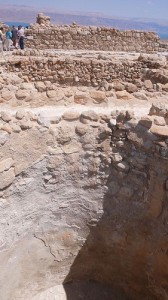When I told my son that I was going to Cape Town, he told he had a friend there who belonged to a mosque committed to including women in worship, a community under the leadership of a progressive imam. It happened that my commitments to teach at Limmud, the South African version of the British festival of Jewish study, began late Friday afternoon. So I called Imam A. Rashied Omar and arranged to visit the Claremont Main Road Mosque for Friday prayers and an interview.
My new article on the mosque and the imam is now up at the American Prospect. A personal preface: The fact that I wrote about this particular community and its leader doesn’t mean they are unique. Indeed, friends who have already seen the article have already sent me names of other Islamic teachers working in similar veins. I’m writing about Omar because he’s the one I had the opportunity to meet.
I don’t know what portion of Muslims he or his community represent. But I don’t think that the essence of a faith is determined by majority vote. In 1665, the majority of Jews believed Shabtai Tzvi was messiah and that Nathan of Gaza was his prophet. The dissidents who understood that their community was in the midst of mass hysteria had a stronger grasp of Judaism. Today the majority of Orthodox Zionists in Israel are caught up in a warped version of Judaism, originally promoted by that latter-day Nathan of Gaza, Tzvi Yehudah Kook, that sanctifies land, power and Jewish exclusivism. I firmly believe that the majority is deeply mistaken.
This is a statement that can be made from within a tradition. Looking at Islam from the outside I can only note that there is a debate within it. Most writers from the outside who assert what Islam “really” is do






